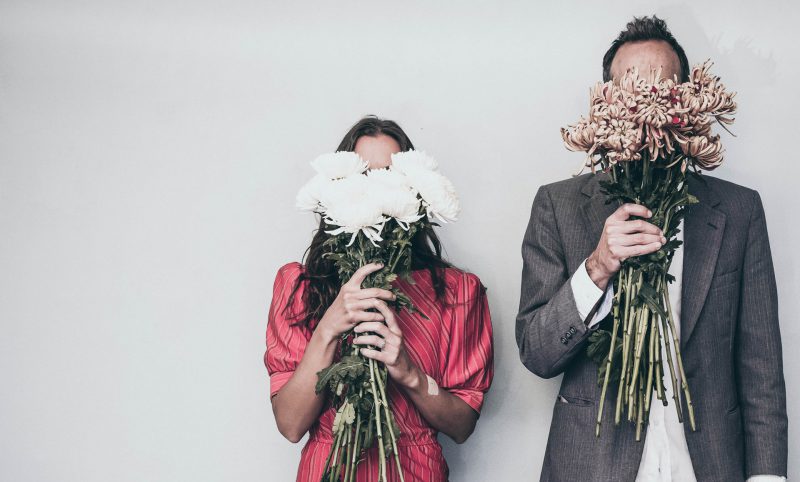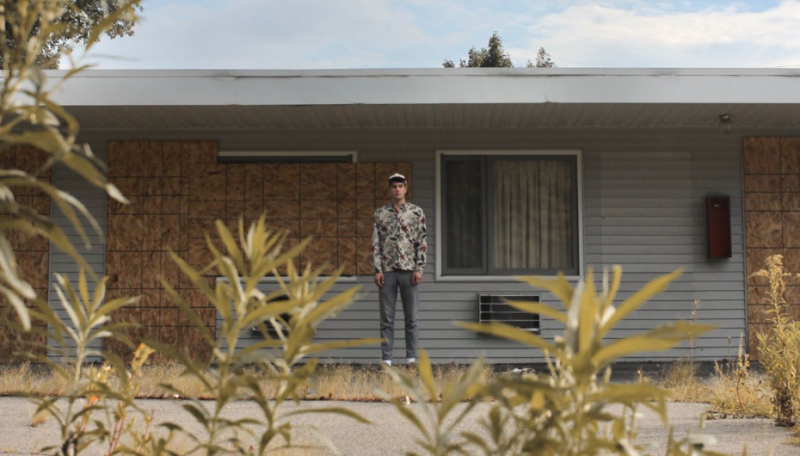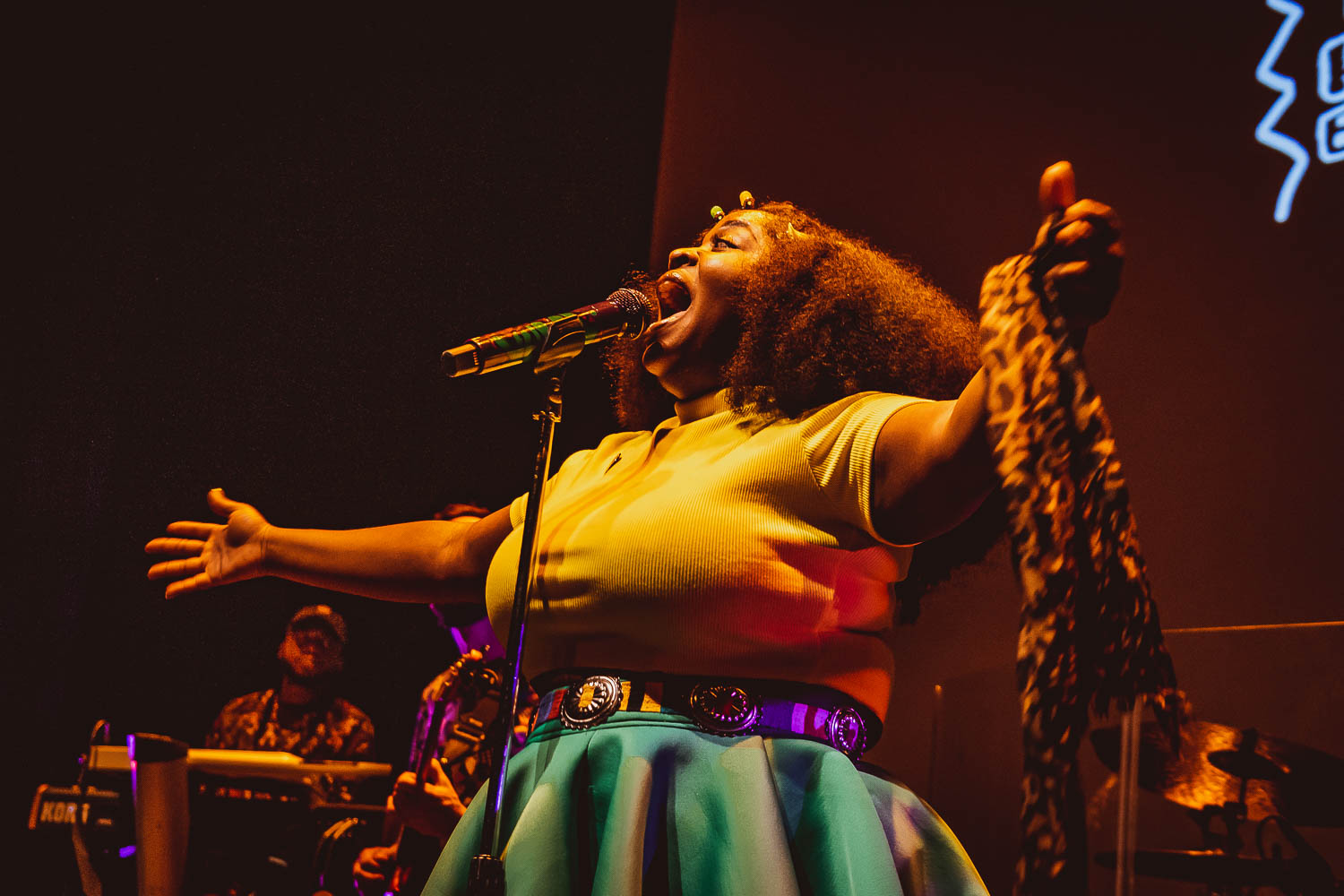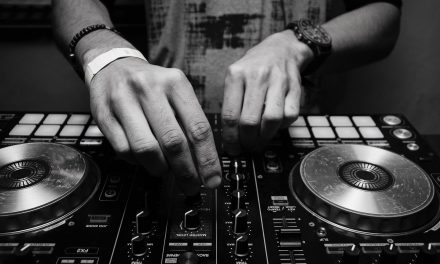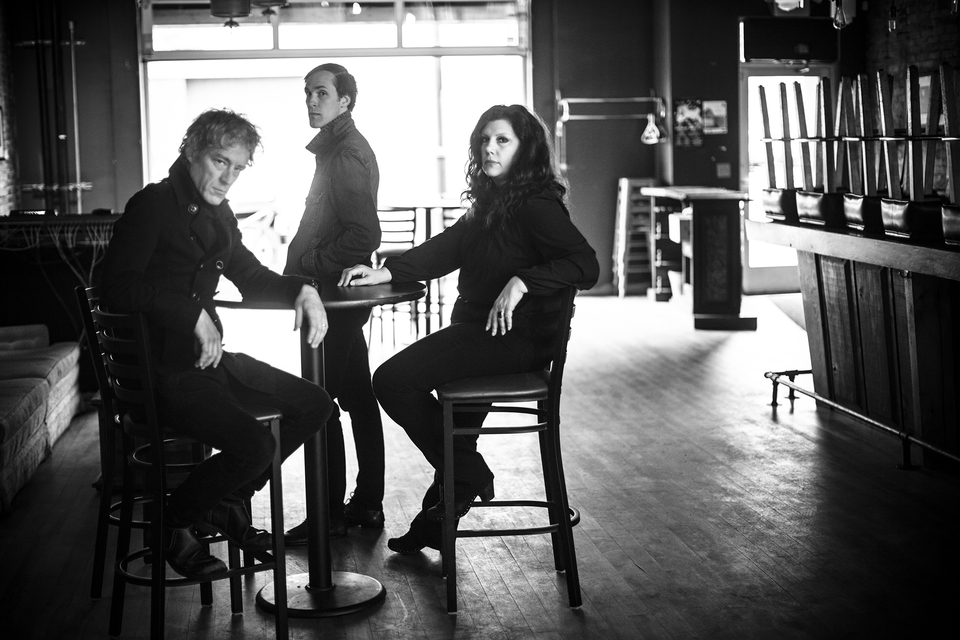This article first appeared in The Alt on April 12, 2018.
After their second miscarriage, Jen O’Connor and Eric Krans of The Parlor discovered chrysanthemum growing in the garden of their Altamont home. A representation of grief itself, it was blooming with life, resilient. Also called kiku in Japanese, the flower requires close attention and pruning in order to flourish.
“Like bonsai, the more you prune it, you have a really elaborate bloom with lots of flowers,” O’Connor explains.
“The process or art of the kiku had this analogy for us: we as humans dream of how our life should turn out so we’re constantly ‘pruning’ the framework of how we want those dreams to come true,” Krans says. “You think you have control over your kiku bloom but you don’t.”
The flower became a symbol of their loss, and ultimately, their journey to recovery. But the husband and wife art-pop duo took some time before turning that realization into art, hinting at their eventual choice to speak out in the closing track of their 2015 album Wahzu Wahzu.
“‘Wishes in the Sheets’ is actually about the second miscarriage that we had. We didn’t have the strength to talk about it at that point so it was pretty veiled,” Krans says. “With our third miscarriage, this ‘American Dream’ vision—where you envision a family with kids running around—[has] been ripped away from us, and from a lot of people. We feel like we were privileged to even have this dream.”
The pair had decided they would not talk about their experience openly as a band until they stumbled upon @ihadamiscarriage. The Instagram account by psychologist Dr. Jessica Zucker provides a platform for women who have suffered a miscarriage to address their loss with deeply personal accounts on a platform of their peers. It was here where they saw the collaborative art piece by Quiet Creature and commissioned the illustrator for their third and most personal album, Kiku.
“Like Our Day in the Sun, this album wrote itself,” Krans says, referencing their debut project. “If you’re interested in synchronicity and cosmic vibrations, you let the story tell you what to do next.”
With four singles released so far, Kiku opener “Soon” was the first to drop. “We felt it was the most direct introduction to articulate the story,” Krans says.
They dropped a self-produced, filmed and edited music video for the single in February. Scattered with symbolic lush, white chrysanthemums, the video is softly lit and features intimate, artistic portrayals of their ongoing healing process such as O’Connor’s meditative routine.
“Jen has been taking these intentional healing baths with herbs where you sit and think about the meanings of each and it becomes a form of meditation,” Krans explains. “When you let the water out, your thoughts go with them, so it was really important for us to show that in the video.”
The rest of the songs—“In”, “You” and “Superbloom”—represent the different aspects and experiences of the grieving process for the pair.
The Parlor built Kiku out of stolen moments and alien environments, building a new sound for each memory to live in. “With the album, some of it was intentional, but some of it was discovered,” Krans says of the songwriting process.
“Superbloom” for example, was born from The Parlor’s Southwest tour last winter. They wandered the desert, listening to Hand Habits, plucking away at the guitar. “All of it just felt like a part of our story that needed to be told,” he recalls.
The Parlor is currently on tour along the east coast promoting the new album, putting themselves in the midst of new inspirational environments and sounds. They’re already dreaming about their next project and different directions it can take.
They’ve been inspired by the bands they share the stage with, such as psych-pop band Calico Vision or the dark rock of Dinosoul. “We admire bands that have a complete vision,” Krans says.
The band says they’ve never been afraid to take on new stylistic challenges, their new synth heavy sound is evident of that, reflecting electro-pop anthems like those of MGMT’s Oracular Spectacular or Congratulations. Ever constant is the duo’s signature vocals. They’re soft and cradling, even if they’re not meant to be.
“We feel like we’re getting darker, scarier, heavier, really becoming OK with being psychedelic,” Krans says. “Then people tell us we’re even more relaxing and gentle… even if we try to be loud.”
But The Parlor doesn’t need volume or darkness to communicate the pain in their attempts to start a family. It’s all there in the soft echoes of Kiku—in heart-wrenchingly honest lyrics about faith, longing and love. There’s brightness here, and strength.

Cover art by Quiet Creature
“Do you believe in me / Cause I believe in you and there’s nothing anybody can do / I offer you my hand / The dust in my fingertips is made up of pieces of you ” they sing together in “In.”
“Jen and I have had a really great partnership,” Krans says. “What made it so scary about speaking about the miscarriage is that people are afraid of confronting grief. The initial outpouring of support is always there, but then you’re alone and there’s no going back to normal again. Jen and I are building a new normal. We’re OK with doing new and scary things because they don’t feel as scary as they used to.”
With their music, The Parlor is able to face their trauma and every accompanying bump in the road, embracing it willingly with each song and creative endeavor. They’ll be wrapping up their Kiku tour at the end of April and tackling new projects back at home.
“It doesn’t become easier to do it, just less scary,” Krans says. “It’s exhausting to go back to that place again, emotionally, but we have a solid groove we’re going with right now. Things that may have spooked us in the past, none of it feels too big.”

